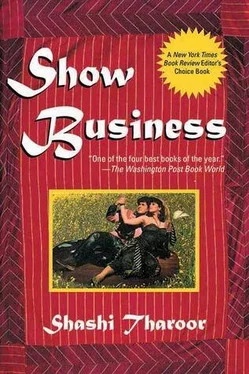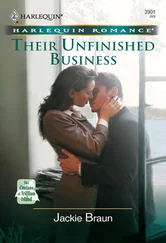At this moment my own weight is more than I can lift. I am crushed into the sofa: for a woman as thin as she is, Radha Sabnis packs a lot of power. And what’s more, she now has one hand free, thanks to my failed sortie. Her fingers are ruthlessly determined, discarding every obstacle in their way like panzers rolling into Poland. One by one, each of my pathetic defenses is dealt with, flung aside: T-shirt, belt, buttons. Unless I fight back, this will be an abject surrender. Air raid sirens wail in my mind: her fingers are tugging at my zip! With a superhuman effort — God, I could have done with a stunt man here — I try to wrench myself away. The result is a pelvic jerk that rolls us both off the sofa, sends us crashing into the coffee table, and deposits us on the floor with Radha still on top, mouth glued to mine and hand safely ensconced where I hadn’t wished it to be. A trickle of Pol Roger Rose, 1968, from the ruins of the coffee table drips stickily into my eyes.
Radha Sabnis lifts her head briefly and smiles at me. “Such passion, Ashok,” she says with a winsome shake of the head. “You really must learn to control yourself.” Before I can catch enough breath to reply, her teeth have padlocked my tongue again.
I give up. I close my eyes and think of Cyrus.
“Was she amenable, mood-wise?” he asks me later.
I pick lint from her carpet off the sticky champagne on my cheek. “You could say that,” I confirm shortly.
“What did she want, man?” he asks insensitively. “A donation to her favorite charity?”
I nod. “You could say that too.”
“I hope,” says Cyrus solemnly, “that you were in a charitable mood.”
Suddenly I find myself laughing. Laughing uncontrollably, in huge, whooping bursts that startle my public relations agent, who looks for all the world like a bewildered owl woken unexpectedly at daytime. I wipe tears and champagne from my eyes. “Cyrus,” I announce, “if your bloody idea doesn’t get me a better press in Cheetah’s column next week — you’re fired.” I am still laughing as I leave him, but Cyrus Sponerwalla is a very worried PR man indeed.
But I have another associate on my mind: my wife, who is waiting for me. I am supposed to pick up Maya from the beauty salon. She spends more time being beautified these days than when she used to act.
“You’re late,” she says as soon as she gets into the car. Maya can never resist an opportunity to restate the obvious.
“I’m sorry,” I concede. “I had to stop and see Cyrus on the way, and then all this hassle of coming by the back road, to avoid being mobbed … you know how it is.”
“I don’t, actually,” she replies tartly. “I don’t know how it is anymore. It’s a surprise when anyone recognizes me these days. What on earth have you got on your face?”
“My face?” I reach up to my cheek in alarm. My face is, after all, my fortune. “Where?”
“Near your eye.” She reaches across and pulls off a tiny yellow feather. The stuff Radha Sabnis has in her living room! Doesn’t a yellow feather symbolize something? “There’s all sorts of muck near your temple,” she says, handing it to me. I run a finger over the offending spot, which I find coated with cigarette ash in a wine base. “Where have you been?”
“Plying Radha Sabnis with champagne,” I reply truthfully. This is difficult, because in the last couple of years I have got used to lying to Maya about my extracurricular activities. But she has seen Radha Sabnis, at least at parties, so the truth is less likely to arouse suspicion than any version of the unconvincing tales she is clearly beginning to see through.
“But how could you get it onto your face?”
“Clumsiness,” I sigh. “Opened it badly — it sort of sprayed all over. Didn’t have time to clean up properly afterward.” Truth again.
Her little face settles into that tight look of disapproval I am becoming accustomed to. “You smell like a brothel,” she says. “And it’s not only the champagne.”
“What are you trying to say, Maya?” I keep my voice low. The chauffeur has heard this kind of conversation before, but there is no reason to make it easier for him. “You can ask the bloody driver where I’ve been. You’re not suggesting I’ve been having some sort of orgy with Radha Sabnis of all people, are you?”
She is silent. It is not the kind of question you can easily answer.
“Well, go on, are you?”
“No, I’m sorry, Ashok.” She doesn’t look at me, but at the back of the chauffeurs head. “I guess I’m getting a little irritable these days. You’ve got your own life, and I hardly see you. I’ve got nothing to do, Ashok. I’m bored.”
“I thought, with the house to run, and all the magazines you read, and the visits to the beauty parlor, and all the film functions, you had more than enough to keep you occupied. What more do you want?”
“I don’t know.” When she is in this mood I can scarcely believe she is the girl I fell in love with, the even-tempered, ever-smiling beti of the nation. “I miss my acting.”
“Now don’t start that again.” I am weary of this topic. We have discussed it more times than I have fought screen brawls. “You know we agreed you couldn’t go on after marriage. No one does: Babita, Jaya, you know them all. It was difficult enough to get my parents to agree to my marrying an actress. How do you think I’d feel to see my wife being chased around trees? It’s just not” — I am about to say “decent,” but think better of it — “worth discussing.”
“Well, I have to put up with you chasing other women around trees,” she retorts hotly. “And God knows where else you chase them.” Not that again, oh Lord, I think, but she has weightier matters in mind. “I’m a professional actress, Ashok Banjara, and I’m sick — sick — of not exercising my profession.”
I can’t take too much intensity in a moving car. Besides, Radha Sabnis has taken much of the fight out of me. “Look,” I say earnestly, “I can understand how you feel. Let’s wait for the doctor’s report on your frog test, OK? If it’s clear, I promise we’ll work out some sort of role, I mean a good role, for you in one of my next films.” (This isn’t hedging; I’m signed up for eleven films simultaneously at the moment, so I can’t talk in the singular.) “If you are pregnant, well, of course, that’ll be that.”
“Oh, Ashok, do you mean it, really? Is that a promise?” She is almost tearful in relief.
“Of course, Maya,” I reply expansively. “I don’t like seeing you upset like this.”
“You promise I can act again if I’m not pregnant?”
“Absolutely.” Anything to buy peace. I do not mention that, in a gesture of excitement he would not make for lesser luminaries among his clients, the doctor has already telephoned me this morning with the good news.
“I love you, Ashok,” Maya says fervently.
I take her hand in mine. “I love you, too, baby.” A small twinge of conscience strikes. “We’ll send the driver to pick up the doctor’s report in the afternoon.”
Back to work. I am no longer entirely sure where or to which film. I now have a secretary who schedules me, thrusts a piece of paper into the chauffeur’s hand, and sends me on my way, sometimes to do three films in the two shooting shifts theoretically available. In most Bombay studios, these are 9:30 A.M. to 5:30 P.M. (the day shift), and 6 P.M. to midnight (the evening, or more realistically night, shift). In my early days I would have been lucky to have enough work to shoot every day, but now I am so overcommitted I can’t meet my obligations within the two possible shifts. “Gimme dates,” scream the producers, sounding like socially starved American teenagers, “gimme dates.” So my secretary, the efficient Subramanyam, gives them dates, and sometimes they’re the same dates for three different producers. Which means I shuttle back and forth, leaving one shift early and arriving at the next one late, sometimes decamping after one shot and promising to be back for the next, not always keeping the promises. What the hell, the films seem to get made anyway, and as long as they have my name on them they don’t do too badly at the box office.
Читать дальше












